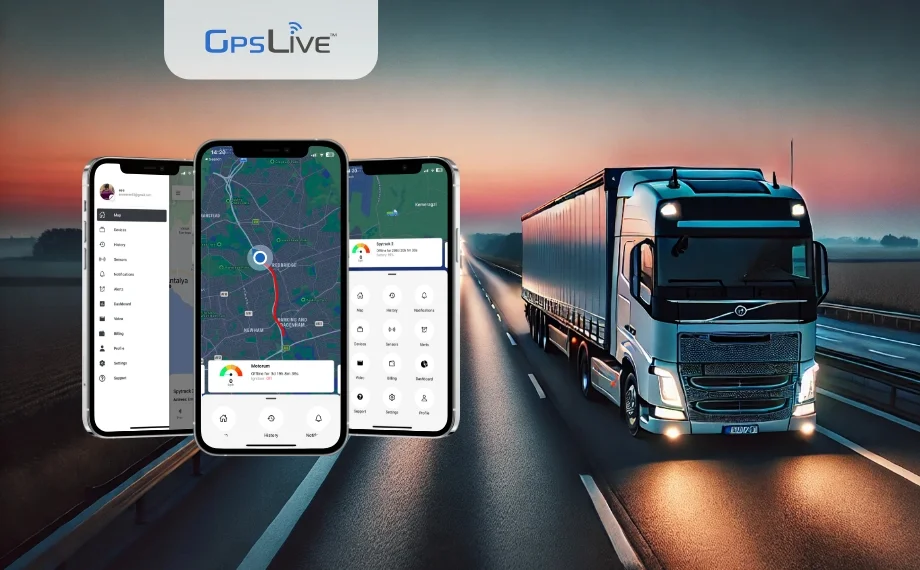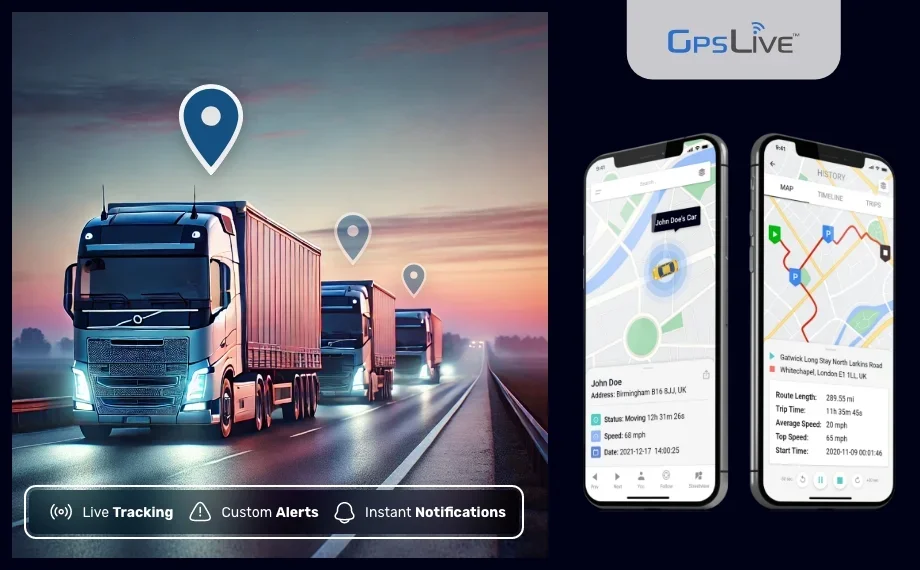Fleet management is a challenging job–we all know it! It is not about managing vehicles but many other tasks like has the vehicle reached the destination, is the driver driving responsibly, are the goods in proper condition, is the vehicle performing properly, and it’s just the tip of the iceberg.
Undoubtedly, this can make fleet managers have sleepless nights. Moreover, these were just operational tasks; fleet managers also have to take care of admin tasks. Snowballed under all these tasks, the only question concerning fleet admins is how they monitor each task remotely without hassle?
Thanks to fleet tracking systems, they can now monitor all fleet operations remotely through one interface seamlessly. Fleet GPS trackers combine GPS technology, cellular networks, and software applications to monitor and track vehicles within a fleet.
But along with tracking benefits, fleet tracking solutions provide valuable insights into vehicle and driver performance, fuel consumption, delivery schedules, and much more, easing the burden of fleet managers.
However, GPS tracking technology is not something new, but innovative tech developments introduce advancements in GPS trackers like real-time tracking.
What is Real-time Tracking?
Real-time or live tracking is simply monitoring and tracking vehicle movements in real-time, avoiding major lags. This enables fleet managers to keep an eye on all vehicles at all times. Using the vehicle’s location and speed data, the fleet GPS tracker transmits live coordinates to a centralised fleet management software where admins can view it through a comprehensive dashboard.

A single interface provides a bird’s eye view of vehicle whereabouts along with other important data. The GPS tracker also notifies admins of crucial events like overspeeding or theft to immediately take corrective actions.
With enhanced visibility and control over operations, real-time tracking helps increase fleet efficiency and profitability.
Let’s dive into detail to understand the benefits of real-time tracking and how it makes a fleet more efficient.
Increased Productivity
When you can track vehicles in real-time, you can know if they are going to a decided destination on decided routes. Fleet managers can identify anything that does not go as planned and work towards it immediately, saving time and money. Likewise, they can dispatch the nearest driver to the job site and complete more trips in a day, boosting productivity.
The fleet GPS tracker notifies if a driver takes an unauthorised route or stops, ensuring they follow all rules and work without any bad intentions. Fleet managers can plan optimised routes with location details, saving fuel costs and increasing efficiency.
Monitor Drivers’ Performance
Along with real-time location tracking, fleet tracking systems provide real-time alerts on drivers’ driving behaviour. For example, the GPS tracker will instantly notify the fleet manager if the driver is speeding, hard braking, or cornering.
They can get hold of such activities and reduce the chances of accidents or collisions, improving vehicle performance. Fleet owners can engage drivers with risky behaviour in extra training sessions and improve their driving skills. Better driving reduces vehicle wear and tear, saves fuel, and improves operational efficiency.
Better Customer Service
Live location tracking is not beneficial for fleet companies but also for customers. Fleet companies can share live location details with customers and track their packages whenever they want, increasing customer satisfaction. It eliminates guesswork, customers can know when their package will arrive and improves customer-side operations.
Also, due to unavoidable situations like accidents or breakdowns, live location can help fleet owners to plan their consecutive trips accordingly and inform customers about delays, improving customer service.
Reduced Costs
Real-time location tracking assists with route planning, monitoring drivers, improving customer service, and reducing costs. For example, fleet GPS trackers notify of excessive idling in real-time, saving fuel costs. Speeding, idling, collisions, etc., affect vehicle wear and tear as well, reducing maintenance and repair expenses.
Fleet tracking systems help with preventive maintenance schedules to avoid vehicle breakdowns and improve fleet performance. Effective asset management enhances a vehicle’s longevity, saving costs on frequent replacements and repairs.
Automation of Admin Tasks
Earlier, fleet managers would have to manually calculate drivers’ hours of service. But thanks to the real-time tracking feature of fleet tracking systems, job arrival, number of trips, day completion, etc., are automatically calculated. Fleet managers can easily view all this data from the fleet management software’s dashboard.
Fleet admins can save a lot of time on admin tasks and focus on strategic decision-making and growth.
Wrapping Up
Live location is a very beneficial feature that helps fleet companies overlook several operations in real-time. A fleet company can achieve an edge and scale business with lower costs and improved efficiency. Fleet GPS trackers provide fleet managers with valuable information and insights to effectively manage their fleet, improve safety, optimise operations, and enhance productivity. And a productive fleet business serves customers better, enhancing customer service and increasing profitability.

